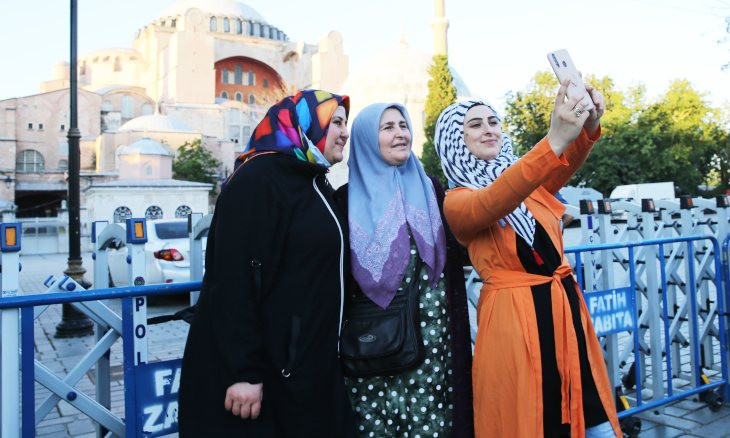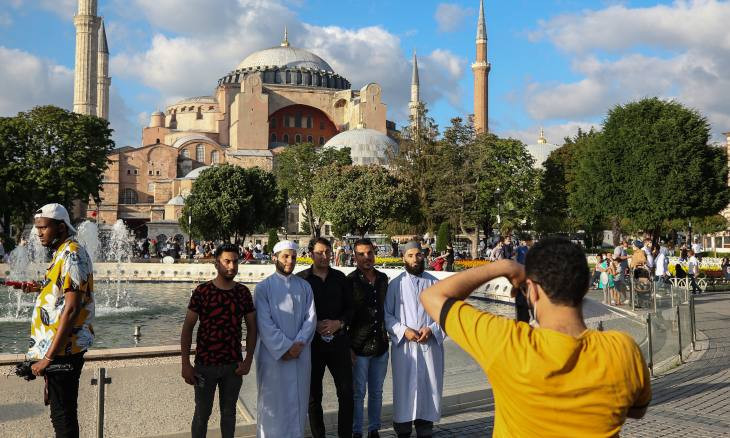Turkey's 1934 conversion of Hagia Sophia into museum was 'wrong,' 'mistake is being corrected,' says Erdoğan
President Erdoğan has said that Turkey's conversion of iconic Hagia Sophia into a museum back in 1934 was a “wrong decision” and the government is now “correcting a mistake.” Erdoğan also said that Hagia Sophia’s cultural heritage will be preserved.
Duvar English
 Turkey rejects EU condemnation on Hagia Sophia
Turkey rejects EU condemnation on Hagia SophiaPresidentRecep Tayyip Erdoğan has said that Turkey had undertaken a “wrongdecision” back in 1934 by making Istanbul's iconic Hagia Sophia amuseum and now his ruling Justice and Development Party (AKP) was“correcting a mistake.”
“Weturned Hagia Sophia into a museum [in 1934] through a wrong decision,and we are returning it to a mosque again,” Erdogan said on July14, following a Cabinet meeting in the capital Ankara. “We arecorrecting a mistake. The incident is that simple.”
Built in the sixth century as an Orthodox Christian cathedral, Hagia Sophia was converted into a mosque after the Ottoman conquest in 1453. In 1934, Mustafa Kemal Atatürk, the founder of modern Turkey, decreed that the ancient structure should be a museum.
 Converting Hagia Sophia into mosque 'is continuation of our July 15 revival'
Converting Hagia Sophia into mosque 'is continuation of our July 15 revival'OnJuly 10, Turkey’s Council of State — the highest administrativecourt in the country – paved the way for Hagia Sophia’sconversion back into mosque despite international warnings againstsuch a move.
Shortlyafter the court’s decision, Erdoğan handed over the iconicstructure’s control to the country’s Religious AffairsDirectorate (Diyanet).
“Iwould like to once again here underline that Hagia Sophia wasconverted from a museum to a mosque, not from a church,” Erdoğansaid on July 14.
Erdoğan also said that Turkey will protect Hagia Sofia’s cultural heritage like its predecessors did. “While making Hagia Sophia suitable for its foundation again, we will preserve its cultural heritage feature just as our forebears did,” he said.
On July 13, AKP spokesperson Ömer Çelik said that mosaics in the ancient structure will be covered by curtains or lasers during times of Muslim prayer.
The Christian icons would be uncovered and be open to all visitors at other times, and admission would be free of charge, Çelik said.
It was not immediately clear how the lasers would work.
